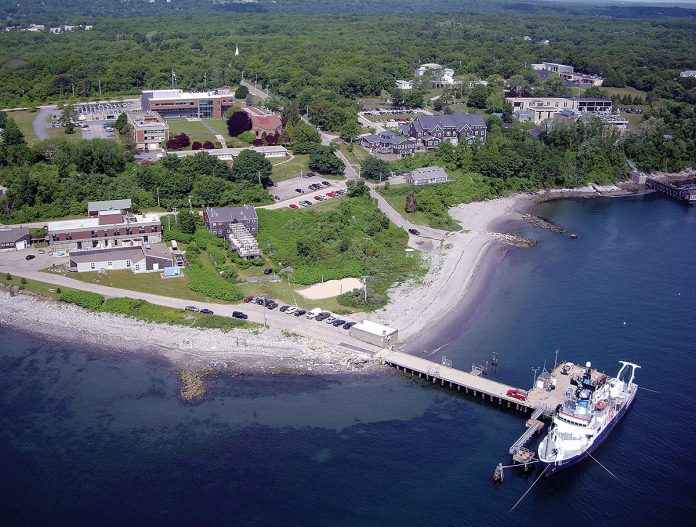
NARRAGANSETT – The National Oceanic and Atmospheric Administration has selected the University of Rhode Island to host its new ocean exploration institute.
NOAA and URI said the Ocean Exploration Cooperative Institute will be a consortium of five ocean science institutions, led by URI’s Graduate School of Oceanography, that will survey 3 billion acres of U.S. ocean territory.
The federal agency announced it is awarding $94 million for the institute over a five-year period, which can be renewed for another five years.
Ocean explorer Robert Ballard will serve as lead investigator for the institute, which will work with NOAA’s Office of Ocean Exploration and Research.
“There is another half of America, beneath the ocean’s surface, that we know very little about,” Ballard, who is also director of the Center for Ocean Exploration at URI’s Graduate School of Oceanography and president of the Ocean Exploration Trust, said in a news release. “U.S. territorial waters cover more ocean than that of almost any other country on Earth. Imagine we’re about to lead the next Lewis and Clark expedition, only six times over. When we’re done, we’ll know what we have.”
The other institutions involved in the Ocean Exploration Cooperative Institute are the Ocean Exploration Trust, Woods Hole Oceanographic Institution, University of New Hampshire and University of Southern Mississippi.
“Being selected to lead NOAA’s Ocean Exploration Cooperative Institute is not only an exciting announcement for the University of Rhode Island, but also central to our research mission as a land-and-sea grant university,” URI President David M. Dooley said in a news release. “We look forward to working with our partners to explore our nation’s vast ocean resources in order to increase understanding and ensure their responsible and sustainable use.”
URI said the institute will play a crucial role in improving the scientific understanding of the deep sea and help strengthen the “blue economy,” a reference to economic activity in the maritime sector, particularly sustainable economic development.
“With the Blue Economy expected to more than double its contribution to the U.S. economy and employ 40 million people by 2030, NOAA’s new cooperative institute will be on the front lines helping NOAA explore and characterize the 3 billion acres of U.S. ocean territory,” said retired Navy Rear Adm. Tim Gallaudet, assistant secretary of commerce for oceans and atmosphere and deputy NOAA administrator. “The Blue Economy relies on data and information to inform science-based management and sustainable use of our ocean resources in support of economic growth, food security and our national security.”
Among its tasks, the institute is expected to develop new methods of ocean exploration using smaller, remotely operating vehicles and autonomous underwater vehicles. The less-expensive equipment will help carry out mapping and exploration missions.
The institute’s work will be viewable by the public through telecommunications technology at the School of Oceanography’s Inner Space Center. Students, teachers and others will be allowed to interact with scientists as they explore the nation’s ocean depths.
The NOAA announcement comes as construction officially begins on a $120 million ocean research vessel that will be based at URI’s Bay Campus.
On Tuesday, Gov. Gina Raimondo was at the Louisiana shipyard where the vessel, the Resolution, is under construction. As the ship’s ceremonial sponsor, Raimondo inscribed her initials on the ship’s keel.
The 200-foot, state-of-the-art ship is expected to be completed by 2021. It is being built by the National Science Foundation and will available to a group of institutions, including Woods Hole Oceanographic Institute in Massachusetts, the University of New Hampshire and Brown University.
The Resolution will replace the research vessel Endeavor, which URI has operated for more than 40 years.
William Hamilton is PBN staff writer and special projects editor. You can follow him on Twitter @waham or email him at hamilton@pbn.com.











